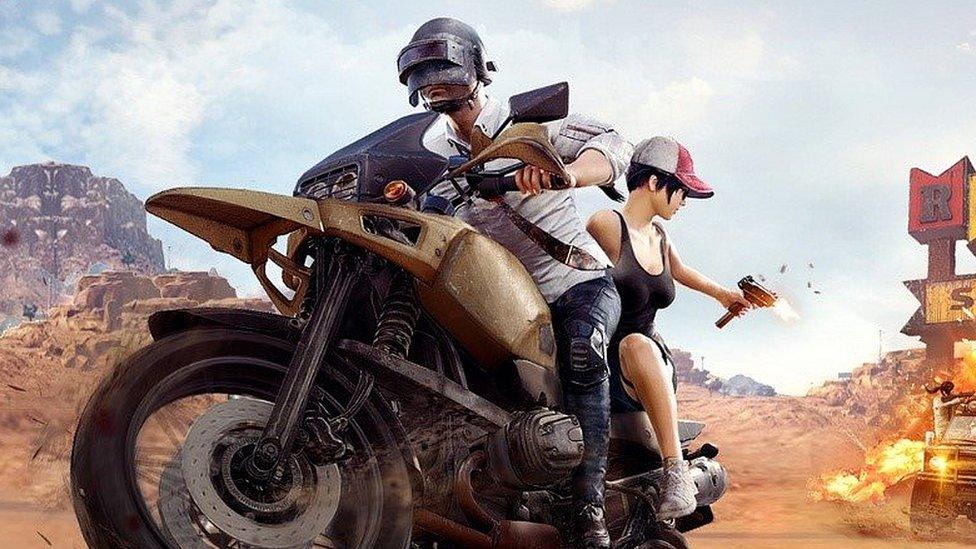PUBG arrests: The Fortnite rival taking India by storm
- Published
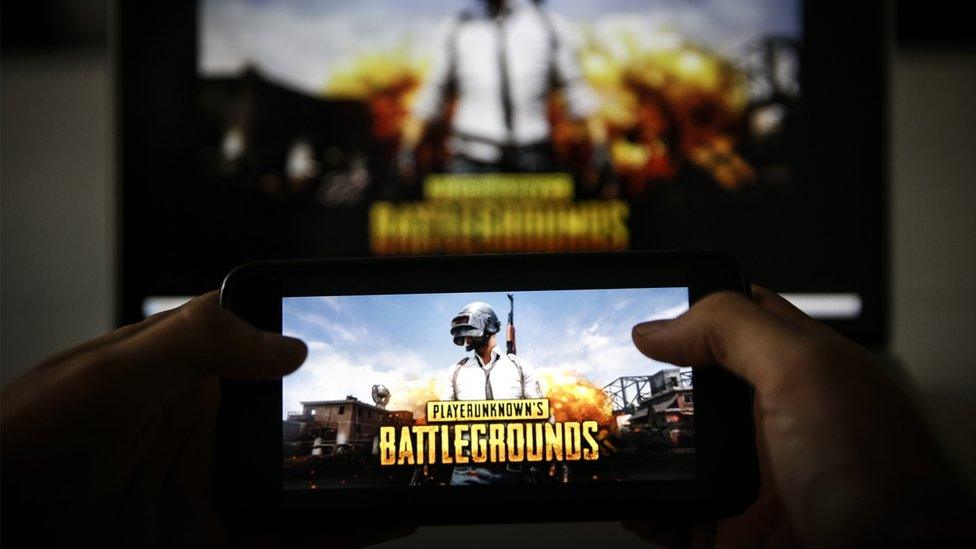
On the face of it, it is just another video game. But PlayerUnknown's Battlegrounds (PUBG) - the rival to Fortnite which has taken India by storm - is now getting people arrested as authorities try to crack down on a game they believe is becoming a danger to those who play it. Supreet Aneja looks at why has got so many hooked.
"Is he a PUBG player?" India's Prime Minister Narendra Modi quipped when a worried mother raised concerns over her son's obsession with online gaming at a student event organised in the capital Delhi a couple of months ago.
His question prompted laughter from the crowd: after all, everyone has heard of PlayerUnknown's Battlegrounds (PUBG), the online multiplayer game, which has been grabbing headlines across the country in recent months.
But some are not laughing. The game has been banned in some Indian cities like Rajkot, where 16 people have been arrested in the last week alone. The reason?
"It is leading to a violent attitude among young people," the ban notification explains.
Meanwhile, officials in the western state of Goa, who have called for their own law to curb PUBG, external, denounced it as a "demon in every house" following a series of shocking stories.
They included reports of an 18-year-old boy from Mumbai city who allegedly committed suicide, external a few weeks ago because he couldn't get a smartphone that supported the popular game, while other stories tell of bullying, theft and self-harm.
But are their concerns justified - or is this just hysteria?
So, what is PUBG?
The online multiplayer game, officially released in 2017, was inspired by the Japanese horror film Battle Royale, in which a group of students is forced to fight to the death by the government.
It sets 100 players against each other, parachuting them onto an island without any weapons or armour. The aim is to hunt for weapons to kill others.
PlayerUnknown's Battlegrounds: Imams divided over video game fatwa
But the game's map decreases in size every few minutes, forcing survivors to relocate to tighter areas. The last player or team standing wins.
The game is owned by the South Korean video game publisher Bluehole. According to Bloomberg, PUBG, which is not free, has generated sales of up to $1.3bn (£980m) worldwide.
How popular is the game in India?
Incredibly. The mobile version has had more than 100m downloads so far.
Lokesh Suji, director of the E-Sports Federation of India, said the low prices of both smartphones and data have fuelled the game's popularity.
"Fortnite, a rival game, failed to launch on Android when PUBG did, which is an important factor," he added.
The numbers may look impressive, but remember India is a massive smartphone market, with the number of users expected to reach 830m by 2012.
The country is among the top five markets for mobile gaming, and more than 40% of users spend an hour every day playing games on their phone, external.
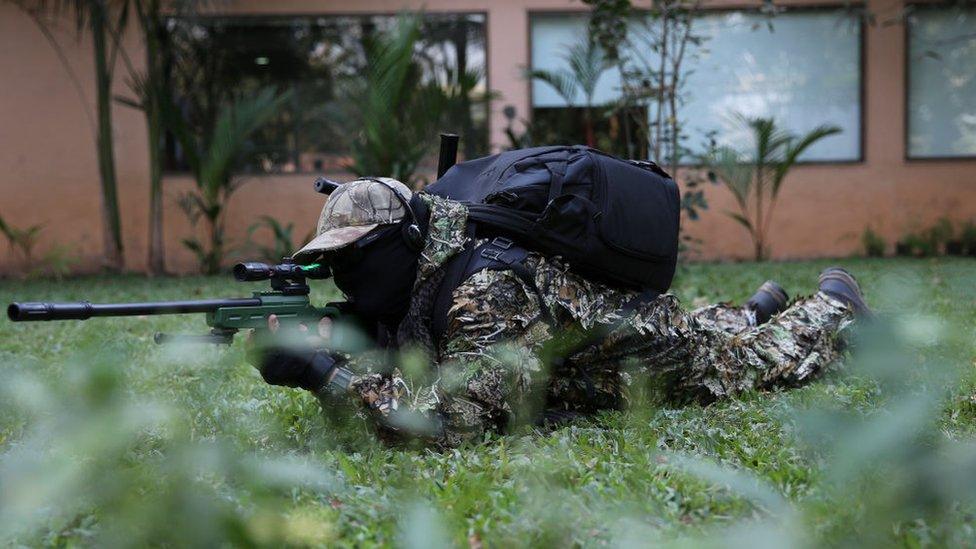
People dress up as PUBG players in real life
It is not just the sheer numbers downloading the game, however, but the time they dedicate to it. A recent survey found that PUBG enthusiasts in India devoted around eight hours every day to the game.
"I end up missing classes to play multiple rounds of the game," student Himanshu Kumar admitted to the BBC, adding that he did find the game more addictive than other, similar products.
So, why do Indians love PUBG?
Gaming experts believe its voice chat feature, which allows players to chat with their team while playing, is helping it stand out.
"This feature makes PUBG more interactive than a lot of other games, since you can actually make friends through playing it," Mr Kumar noted.
For Gunjit Gandhi, another frequent PUBG player, the game is incredibly mobile-friendly and accessible.
"I have never seen such realistic graphics and a chatting feature on a mobile game. Such features are normally found on computer games, which require more time and effort," he said.
The excitement around the game may have also prompted more interest India's burgeoning e-sports industry.
"PUBG is one of the reasons why we've seen a surge in gaming which has helped our industry grow," Mr Suji, who runs the e-Sports Federation of India, said.
But does it really pose a mental health risk to players?
Last month, a gym trainer from the state of Jammu and Kashmir was hospitalised after he allegedly started self-harming while playing PUBG. According to local news reports, it is the sixth such case in the state.
Mental health experts are concerned over the escalating number of such incidents.
"The human mind is designed in a way that it gets addicted to things that give us a sense of accomplishment or achievement, which is how you may feel while gaming," said Dr Rajiv Sharma.
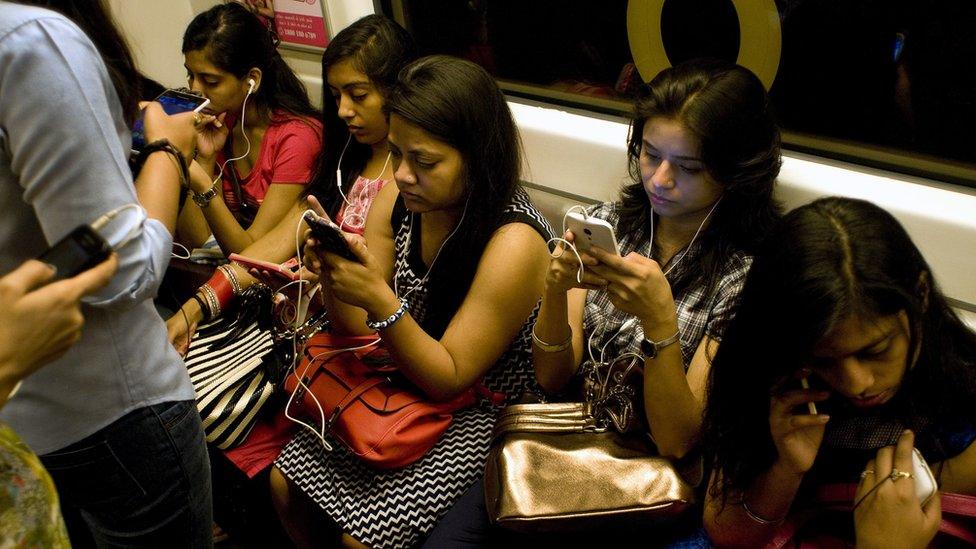
There are hundreds of millions of smartphone users in India
This sensation can lead to addiction, which is when gaming may become a mental health risk, he added.
"But we can't blame or single out PUBG as the reason behind such addictive behaviour," he said.
Dr Amitabh Saha agreed the sense of accomplishment can be addictive, but said it was unclear why it would be leading to the types of stories being reported in India.
However, the addiction alone can cause disruption to someone's daily life.
"Gaming addicts often end up playing games for hours every day," Dr Saha pointed out.
Indeed, for people like Manish Sharma, who works for an IT company, PUBG becomes a vital - and time-consuming - part of their daily routine. Mr Sharma often spends three hours in the office once he's done with work to play the game - despite complaining of regular headaches.
"I can postpone my office work but I can't miss playing PUBG," he said.
- Published15 March 2019
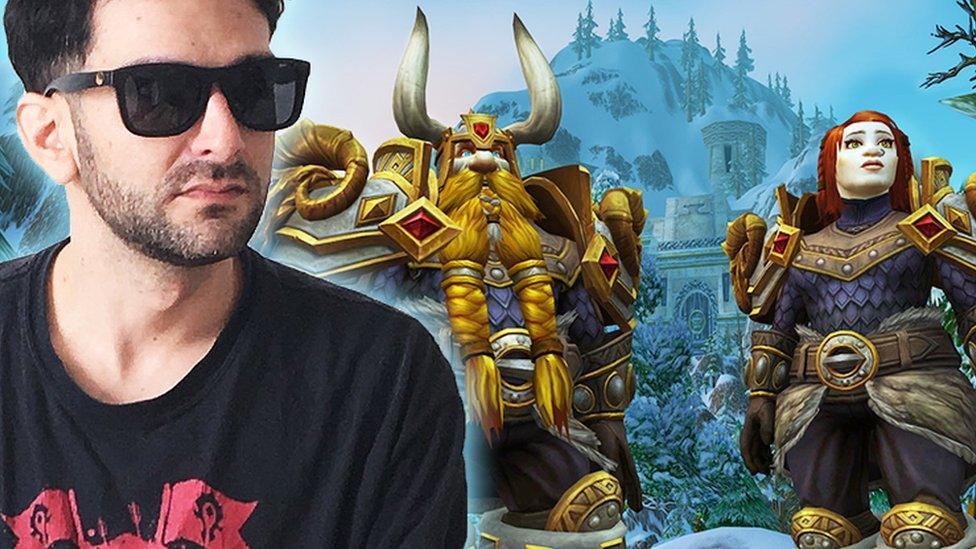
- Published29 May 2018
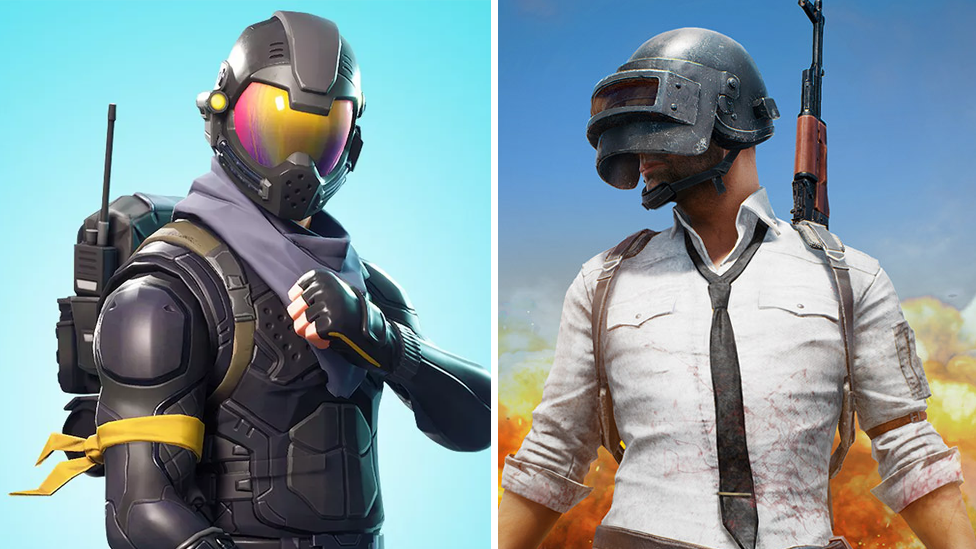
- Published19 July 2018
